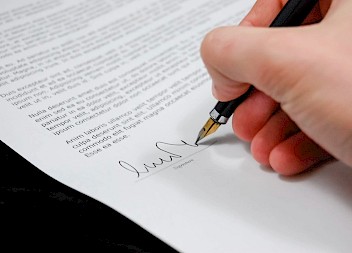
A simple explanation is that compensation is split into three categories:
General damages
General damages are awarded for your pain, injury and suffering. In addition, to compensate for the effect on your daily life (which is referred to as Loss of Amenity)
General damages are calculated using the Judicial College Guidelines for the assessment of general damages in Personal Injury cases. The intention is that there is consistency between awards. The Guidelines set out a range of reasonable monies to be awarded for different types of injuries. There are some examples below.
Compensation for brain and head injury
A very severe brain injury for example, where the patient has little or no language function, little, if any, meaningful response to environment and the need for full-time nursing care attracts up to £354,260 under the guidelines.
However, a minor brain injury where there is full recovery within a few weeks would be valued at £1,940.
Compensation for amputation.
In cases of leg amputation, the loss of both legs above the knee attracts up to £247,280 whereas a below-knee amputation of one leg with no complications could result in £85,910 being awarded. This can be compared with amputation of a little finger that may attract an award of about £7,580.
Past Special damages
Special damages represent all financial loss that can reasonably be shown to have come about because of the injury.
This can relate to the following and anything else that can reasonably be proven to have been caused by the injury:
- Loss of earnings.
- The value of a friend or family member in providing care for you.
- The value of a friend or family member in providing help with daily tasks that you would usually do for yourself.
- The value of a friend or family member in providing care and assistance that you would usually help others with.
- Reimbursement for buying in care and assistance from commercial providers, such as private nurses.
- Medical expenses incurred such as private physiotherapy, psychotherapy, occupational therapy, counselling, alternative therapy etc.
- The cost a new vehicle bought, or adaptations to your vehicle.
- The costs incurred in moving to a new house because of injuries. For example, you may have had to move to a single storey home because using stairs is no longer possible, or safe.
- The cost of having to adapt your home, such as putting grab rails and a raised toilet seat in a bathroom, or of installing a stair lift.
- The cost of clothing and equipment that you have bought because of your injuries, to make life easier and more comfortable. This is referred to as ‘aids and equipment’ for example, special grip cutlery, a lightweight hoover, a wheelchair.
- The cost of increased insurance paid for travel, life insurance etc because of disabilities.
- Travel expenses for extra journeys to medical appointments made as a result of the alleged negligence
- DIY expenses for gardening, handyman, decorating and the like.
- Additional household bills (such as telephone, heating, electricity).
Special damages -future losses
Financial losses are not just losses you have incurred in the past. It is important to look to the future, because injuries may have an impact on long-term health. Often, the largest part of any claim relates to factoring in future costs of providing care and assistance, accounting for future loss of earnings etc.
In the case of permanent disabilities involving injuries to limbs, the cost of prosthetic limbs to enable you to lead, as far as possible, a normal life. Prosthetics can be very expensive indeed. For example, you may wish to claim for different types of limbs to allow for different activities and sports.
So, how much will you get?
We are often asked by clients at the outset how much the claim is worth. An estimate of the value of an injury can be made if the extent of the injury is very clear. However, usually, we wait to value the claim until we have an independent medical report on what the future holds for our client in terms of their injuries. Then we look to the Judicial College Guidelines as a starting point and do a thorough search of all past reported cases to see what compensation was awarded in those cases for pain injury and suffering. This is so that we can put forward the best argument o recover the maximum compensation possible for our clients’ injuries.
In addition, we go through an evidence gathering process to prove all the special (financial) losses. We take steps such as writing to client’s employers, or past employers for evidence of their earnings. We often write to benefits agencies and in the case of complex calculations for those in self-employment, or directors of large businesses, we may need to involve a forensic accountant to help with the calculations.











